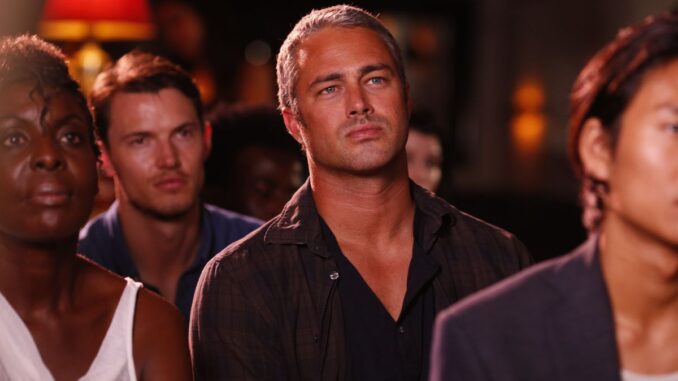
The digital world, ever-hungry for revelations, often presents us with celebrity news in two distinct flavors: the meticulously choreographed spectacle, or the sudden, delightful jolt of the unexpected. Recently, the orbit of actor Taylor Kinney, known for his grounded portrayal of Kelly Severide in Chicago Fire, delivered a potent dose of the latter, stirring a veritable tempest in the social media teacup. The news wasn't just one bombshell, but a delightful double-tap: Taylor Kinney had tied the knot, quietly and without fanfare, and then, almost immediately, opened up about a curious tattoo adventure, inviting fans into a space typically reserved for carefully curated perfection. The resulting fan reaction was a fascinating study in the evolving relationship between public figures and their devoted admirers, proving that sometimes, the most endearing qualities are found in the most human imperfections.
The initial tremor began with a subtle announcement – a quiet wedding, far from the glare of Hollywood paparazzi, seemingly sealed with a private kiss and shared only with close kin. For a man whose on-screen persona often embodies stoic strength and quiet resolve, this un-Hollywood approach to matrimony resonated deeply. Fans, accustomed to elaborate magazine spreads and public statements, were struck by the genuine, almost understated joy radiating from the sparse images that eventually surfaced. Social media buzzed not with gossip, but with genuine warmth. Tweets like "#KinneyKnot" and "My man got married and kept it on the down-low, I respect it!" flooded timelines, reflecting a collective sigh of relief and admiration for his perceived authenticity. It was a refreshing departure from the carefully constructed narratives, a testament to a personal milestone valued above public spectacle.
Yet, no sooner had the celebratory confetti settled in the digital ether than Kinney himself, perhaps in a post-nuptial glow of candor, offered up another nugget of his private world: the tale of a tattoo adventure. Not a meticulously planned, deeply symbolic piece of art, but rather, by his own humble admission, something born of impulse and youthful exuberance. Details emerged in interviews – a curious, somewhat squiggly rendering of what he thought was a mythical griffin, etched onto his forearm during a spontaneous road trip years ago. He recounted the story with a self-deprecating chuckle and a sheepish grin, admitting it might not be his finest body art decision, but one that held a particular, slightly embarrassing, charm. This wasn't the chiseled hero revealing a warrior's mark; this was a man confessing to a relatable, slightly goofy, indelible mistake.
The internet, as always, did not disappoint in its reaction. The confession ignited a digital cacophony, transforming the initial respect for his marital privacy into a veritable landslide of affectionate amusement. Instagram comments overflowed with crying-laughing emojis. GIFs depicting everything from collective gasps to joyous face-palms accompanied tweets like "Not even Taylor Kinney is safe from questionable life choices! Love that for us!" and "My hero has a questionable tattoo, and I'm here for it. He's human!" The tattoo, once a private mark, became a communal joke, a shared moment of vulnerability that somehow solidified his bond with his audience. Fans shared their own tattoo regrets, creating a ripple effect of self-deprecating humor and shared humanity. It wasn't about the artistic merit of the tattoo; it was about the celebrity showing a crack in the veneer, proving he wasn't just a perfect archetype but a flesh-and-blood individual with relatable flaws.
In the confluence of these two revelations – the quiet tying of the knot and the boisterous unveiling of a tattoo adventure – Taylor Kinney inadvertently illuminated a fascinating aspect of modern celebrity culture. No longer are fans content with distant, flawless idols. There's a craving for authenticity, a desire to see the person behind the persona, to connect with the human struggles and triumphs that echo their own. Kinney’s actions, whether deliberate or accidental, offered just that. His marriage exemplified a grounded normalcy, while his tattoo story provided a dose of relatable imperfection. Together, they chipped away at the pedestal, bringing him closer to his audience not as an unreachable star, but as a more endearing, more real, more one of us hero. And in an age of curated perfection, that kind of genuine connection is, perhaps, the most valuable fan reaction of all.
